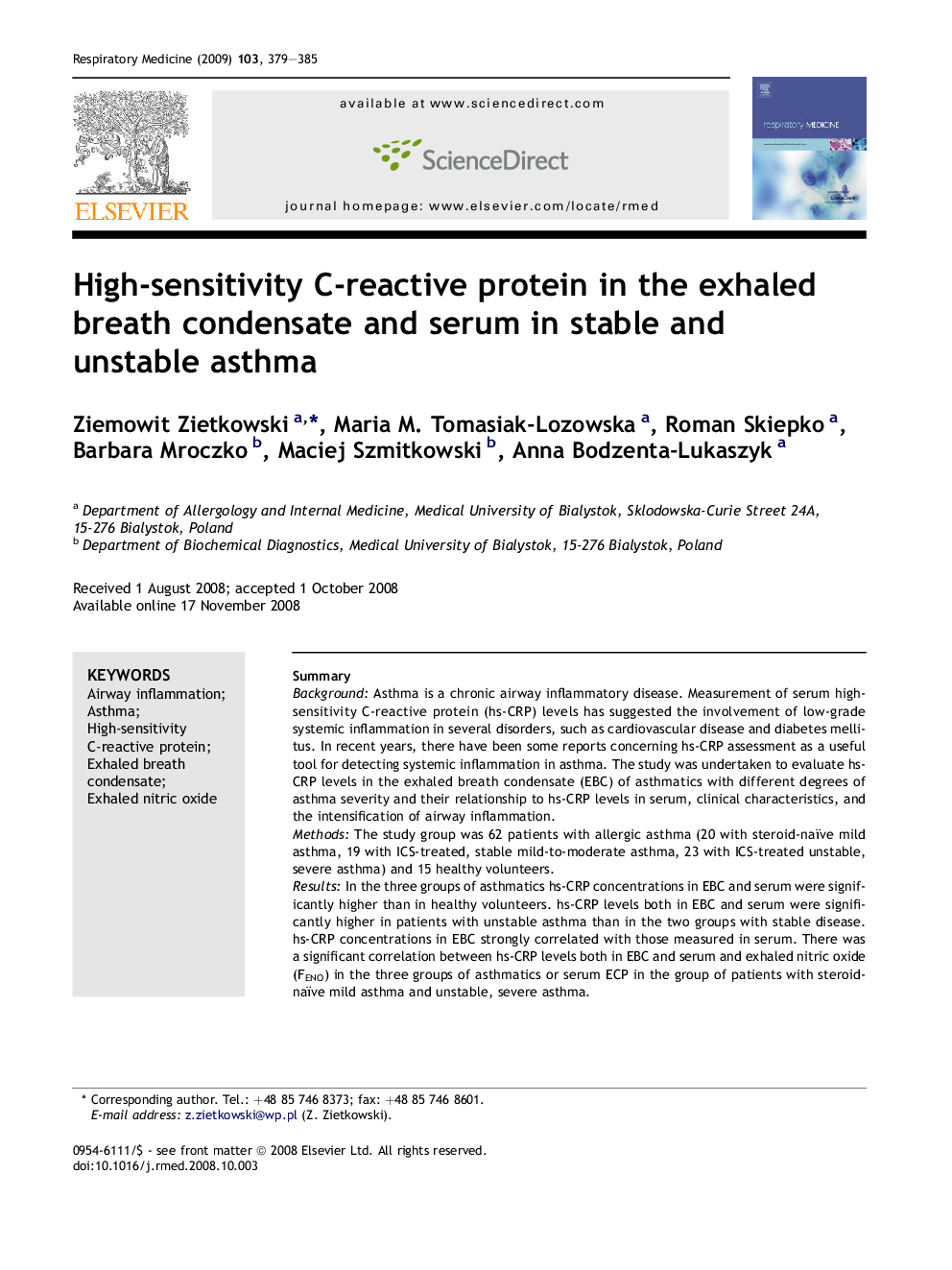| Article ID | Journal | Published Year | Pages | File Type |
|---|---|---|---|---|
| 4211150 | Respiratory Medicine | 2009 | 7 Pages |
SummaryBackgroundAsthma is a chronic airway inflammatory disease. Measurement of serum high- sensitivity C-reactive protein (hs-CRP) levels has suggested the involvement of low-grade systemic inflammation in several disorders, such as cardiovascular disease and diabetes mellitus. In recent years, there have been some reports concerning hs-CRP assessment as a useful tool for detecting systemic inflammation in asthma. The study was undertaken to evaluate hs-CRP levels in the exhaled breath condensate (EBC) of asthmatics with different degrees of asthma severity and their relationship to hs-CRP levels in serum, clinical characteristics, and the intensification of airway inflammation.MethodsThe study group was 62 patients with allergic asthma (20 with steroid-naïve mild asthma, 19 with ICS-treated, stable mild-to-moderate asthma, 23 with ICS-treated unstable, severe asthma) and 15 healthy volunteers.ResultsIn the three groups of asthmatics hs-CRP concentrations in EBC and serum were significantly higher than in healthy volunteers. hs-CRP levels both in EBC and serum were significantly higher in patients with unstable asthma than in the two groups with stable disease. hs-CRP concentrations in EBC strongly correlated with those measured in serum. There was a significant correlation between hs-CRP levels both in EBC and serum and exhaled nitric oxide (FENO) in the three groups of asthmatics or serum ECP in the group of patients with steroid-naïve mild asthma and unstable, severe asthma.ConclusionThe levels of hs-CRP in EBC are correlated with those measured in serum and may provide another useful diagnostic tool for detecting and monitoring low-grade inflammation in patients with asthma.
